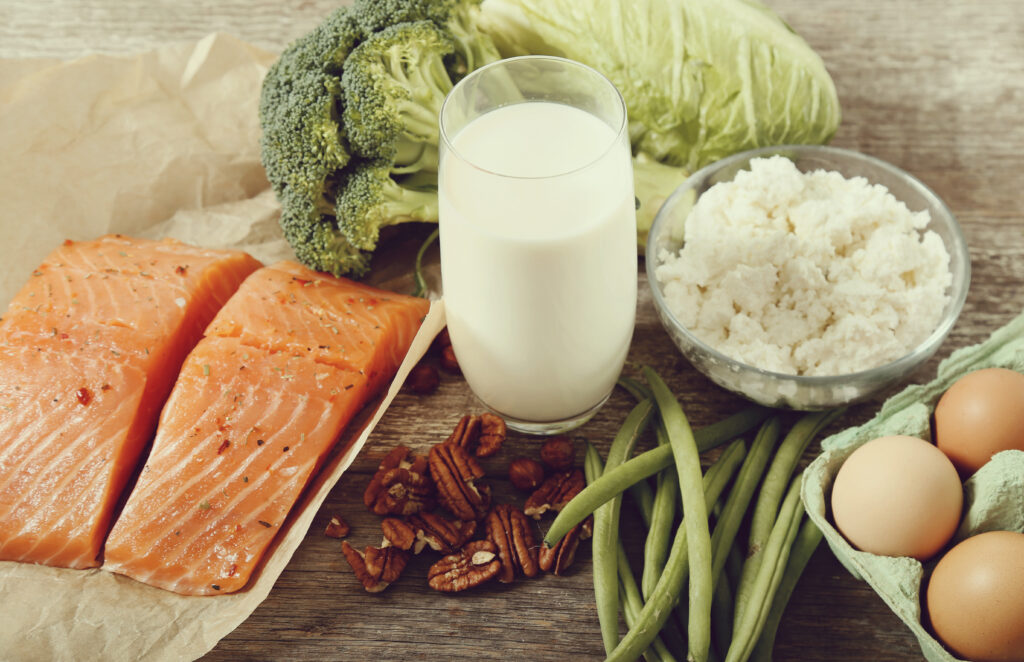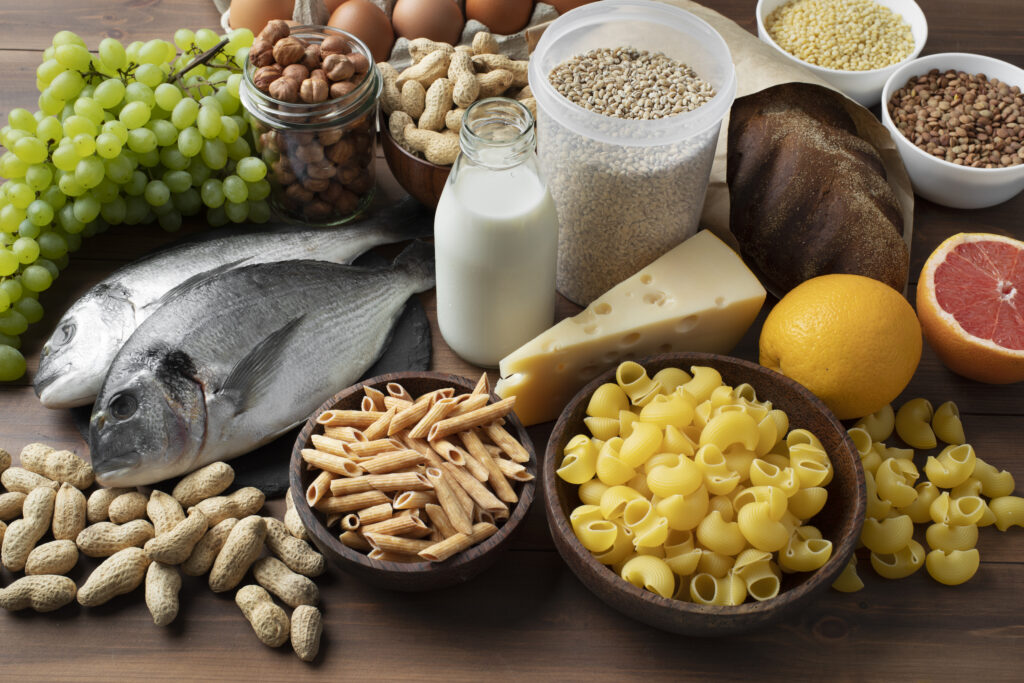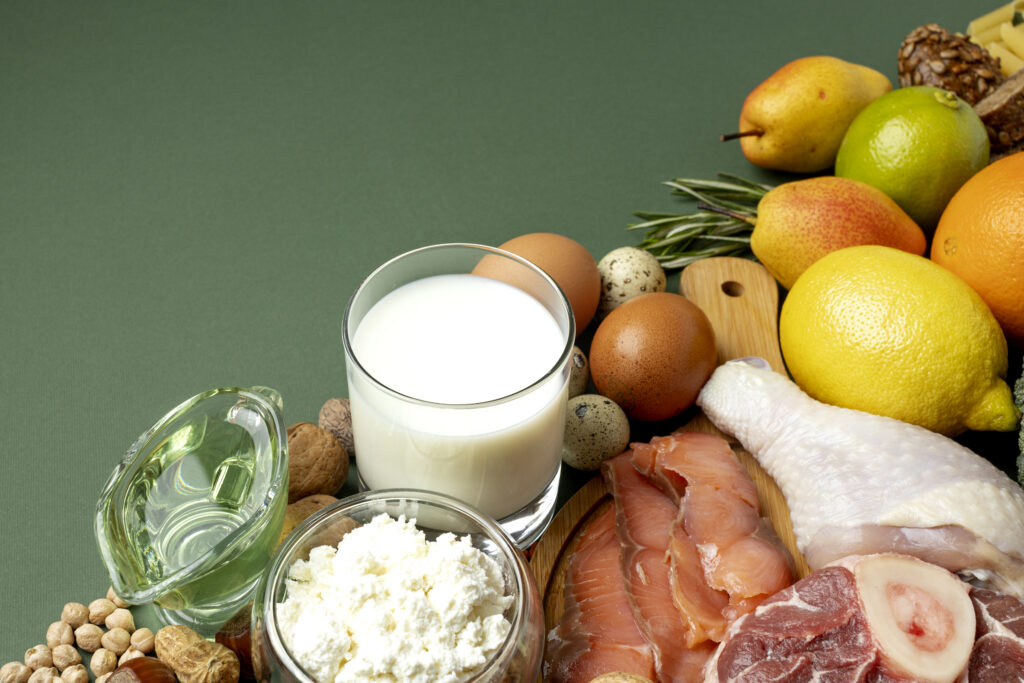
Probiotics are friendly bacteria that live in our guts and help us stay healthy.They support everything from digestion to the immune system, making them essential for overall health. When we eat foods high in probiotics, such as yogurt, kefir, and sauerkraut, we help boost these beneficial bacteria, which can have a significant impact on our health. In this post, we’ll look at the top health benefits of including probiotics in your diet and how they can improve your daily life.
Table of Contents
Toggle1. Boosts Digestive Health
Probiotics help keep your gut balanced by introducing healthy bacteria that aid digestion. When your gut microbiome—the community of good and bad bacteria in your intestines—is balanced, food can be broken down more easily, making you feel lighter and less bloated. Probiotics can be extremely beneficial for those suffering from digestive issues such as IBS (Irritable Bowel Syndrome) and constipation. They help to regulate bowel movements and relieve discomfort, making daily digestion easier and more comfortable.
2. Strengthens the Immune System
Your gut’s health is tightly connected to your immune system because the gut contains nearly 70% of immune cells. A healthy gut microbiome (the bacterial community in your gut) helps your immune system detect and fight harmful invaders more effectively, keeping you healthier overall.
Probiotic-rich foods such as yogurt, kefir, sauerkraut, and kimchi can help improve immune function. These foods contain beneficial bacteria that strengthen your immune system, making you more resistant to infections and illnesses.
3. Enhances Nutrient Absorption
Probiotics help our bodies absorb nutrients in the intestines by promoting a healthy gut environment. When our gut bacteria are in balance, food is broken down more efficiently, making nutrients more available to the body. This is especially beneficial for absorbing important nutrients such as B vitamins, which improve energy and brain health, and calcium, which is required for strong bones and teeth. So, by including probiotics in your diet, you not only support your gut but also help your body make the most of the nutrients you consume!

4. Improves Mental Health and Mood
The “gut-brain axis“—the connection between our gut and brain—is stronger than most people realize. Simply put, a healthy gut can improve our mood and cognitive clarity. This is because our gut and brain are constantly communicating via signals that influence our emotions and mental health.
Probiotics, which promote gut balance, have been shown in studies to help reduce anxiety and depression symptoms. Probiotics help produce “feel-good” chemicals such as serotonin, which can naturally lift our mood and make us feel more balanced and clear-headed. So, eating probiotic foods can be a simple, natural way to help our minds and bodies.
5. Probiotic Foods to Support Weight Management
Probiotic foods can help you manage your weight. Bacteria in our gut play an important role in metabolism and appetite control. Some probiotic strains are known to help reduce cravings, which can naturally aid in weight loss efforts. They also help our bodies process food more efficiently, potentially reducing fat buildup and promoting healthier fat distribution overall. You may find it easier to stick to your weight goals if you eat probiotic-rich foods like yogurt, kefir, and kimchi, because they help balance metabolism and hunger.
6. Promotes Heart Health
Probiotics can benefit heart health. Certain probiotic strains, such as Lactobacillus and Bifidobacterium, can lower “bad” LDL cholesterol, lowering the risk of cardiovascular disease. They achieve this by assisting in the breakdown of bile in the gut, resulting in less cholesterol being reabsorbed into the bloodstream. Some research suggests that probiotics may have a mild blood pressure-lowering effect, most likely due to their role in reducing inflammation and improving blood vessel function. Including probiotic foods in your diet could be a simple, natural way to boost your heart’s health.
7. Reduces Inflammation
Probiotics help to reduce inflammation in the body by balancing gut bacteria, which can soothe immune responses associated with chronic inflammation. This is especially beneficial for people who suffer from arthritis, which causes joint inflammation and pain, as well as inflammatory bowel disease (IBD), which causes gut inflammation. When the gut is balanced with beneficial bacteria, it can better control inflammatory responses, which often leads to fewer symptoms and greater comfort for those suffering from these conditions.

8. Enhances Skin Health
Probiotics are not only good for your gut; they can also benefit your skin! According to research, probiotics can help with common skin issues such as eczema and acne. A balanced gut with healthy bacteria can result in clearer, healthier skin.
Here’s how it works: a healthy gut reduces inflammation and boosts the immune system, both of which are essential for skin health. This means fewer breakouts and reduced irritation from conditions like eczema. Probiotics can also help to strengthen the skin’s barrier, allowing moisture in while keeping harmful bacteria out.
Incorporating probiotic-rich foods into your diet, such as yogurt, kefir, or fermented vegetables, can help you achieve the radiant complexion you’ve been seeking!
9. Boosts Energy Levels
Probiotic foods have a surprising effect on increasing our energy levels. They aid digestion and nutrient absorption, allowing our bodies to get the most out of the foods we consume. Probiotics help synthesize important vitamins and minerals, such as B vitamins, which are required for the conversion of food into energy.
Probiotics also help to maintain normal blood sugar levels. When blood sugar levels fluctuate, it can cause fatigue. Probiotics can help stabilize blood sugar levels by promoting a healthier gut microbiome, ensuring a steady supply of energy throughout the day. This means you’re less likely to have those mid-afternoon energy crashes!
10. Improves Allergy and Intolerance Symptoms
Probiotics can help reduce symptoms of food allergies and intolerances by promoting a healthy gut microbiome. A healthy gut modulates the immune system, which reduces the likelihood of allergic reactions. Specific strains, such as Lactobacillus rhamnosus and Bifidobacterium lactis, have been shown to help relieve food intolerance symptoms such as bloating, gas, and discomfort. These probiotics work by strengthening the gut barrier, preventing harmful substances from causing allergic reactions. Incorporating probiotic-rich foods into your diet, such as yogurt, kefir, and fermented vegetables, can be a simple way to improve gut health and better manage allergy symptoms.
Conclusion
Finally, incorporating probiotic foods into your diet can improve your overall health. The benefits are numerous, ranging from boosting digestive health and strengthening your immune system to improving mental health and skin condition. Simple additions such as yogurt, kefir, and sauerkraut can have a significant impact on how you feel every day. So, why not give them a try? Your digestive system will thank you! If you want to learn more about gut health and how it affects your overall health, keep exploring the fascinating world of probiotics!
FAQS
Probiotic foods contain live microorganisms, primarily beneficial bacteria, that can boost gut health and overall well-being. Examples include yogurt, kefir, sauerkraut, kimchi, and miso.
Probiotic foods promote a healthy balance of gut bacteria, which aids digestion and prevents bloating, constipation, and diarrhea. They can also help treat digestive disorders like irritable bowel syndrome (IBS).
Yes! Probiotics can boost the immune response by promoting a healthy gut microbiome, which is critical for immune function. This can reduce the risk of infection and illness.
While there is no one-size-fits-all solution, including a serving of probiotic-rich foods in your daily diet is a good start. This could be as simple as a cup of yogurt or a small amount of fermented vegetables.
Most people can safely consume probiotic foods. Some people may experience mild digestive symptoms such as gas or bloating when they first start eating them. If you have a weakened immune system or other health issues, you should consult a doctor before adding probiotics to your diet.